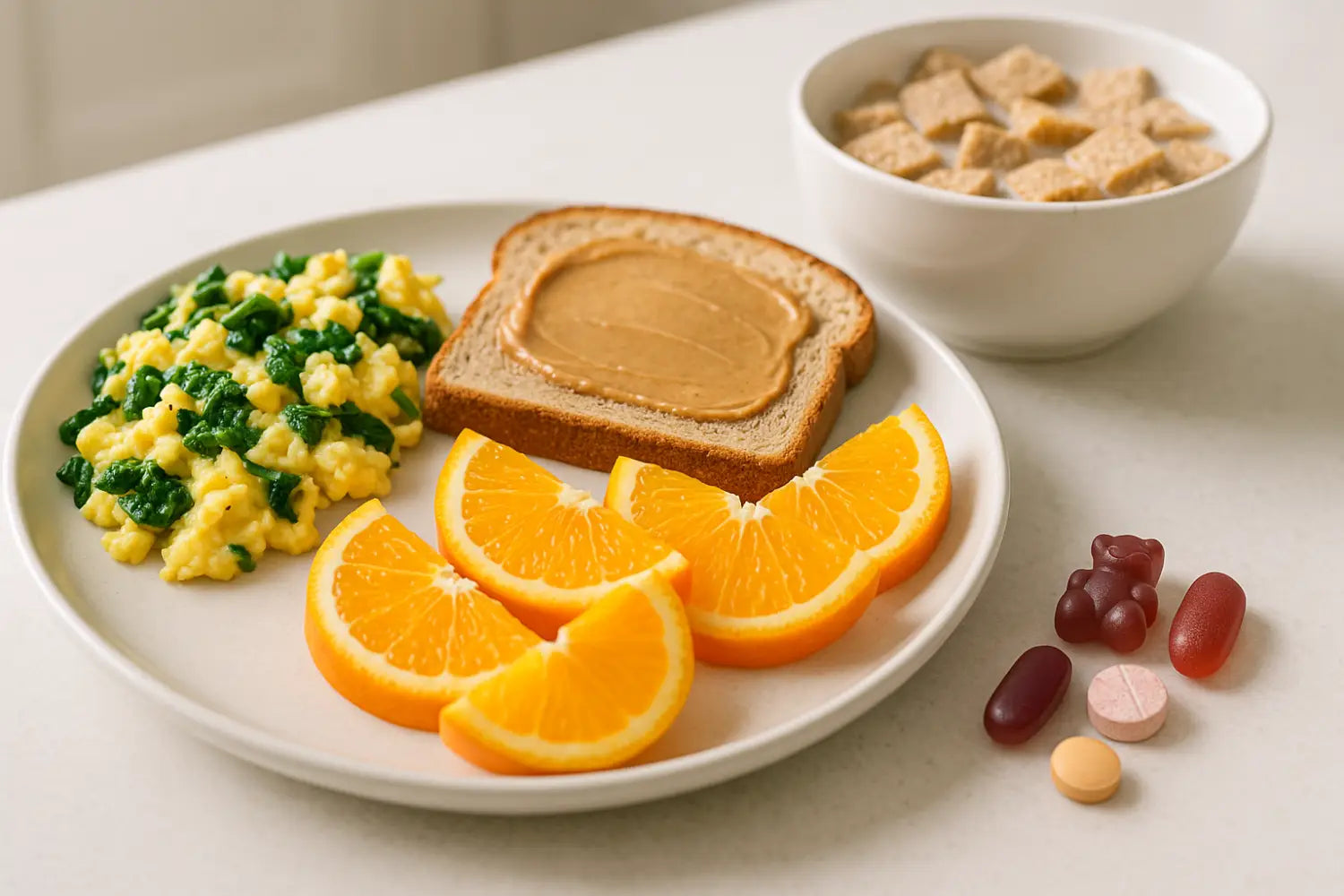
Smart Nutrients for School Focus and Energy
As children return to the classroom, their nutritional intake becomes a critical factor for academic success. A well-nourished brain is better equipped for concentration, memory, and learning. This article delves into the science behind key nutrients that support cognitive function and sustained energy, offering practical, evidence-based advice for parents.
The Foundational Role of Breakfast
Skipping breakfast is surprisingly common among school children, yet research confirms its detrimental effect on academic performance. A systematic review in Frontiers in Human Neuroscience synthesised findings from numerous studies and concluded that a regular, quality breakfast positively impacts on-task behaviour and academic results, with the clearest benefits seen in mathematics and arithmetic grades. The UK government acknowledges this crucial link, supporting a national school breakfast programme to improve educational outcomes in disadvantaged areas.

Key Nutrients for Cognitive Performance
Specific micronutrients are fundamental to the neurological processes that underpin learning and concentration.
Omega-3 Fatty Acids: The Brain's Building Blocks
Omega-3 fatty acids, particularly docosahexaenoic acid (DHA), are integral components of brain cell membranes. A landmark study from the University of Oxford found that higher blood levels of DHA were significantly associated with better reading performance and improved working memory in school-aged children. The NHS advises a minimum of one portion of oily fish (such as salmon, mackerel, or sardines) per week to ensure an adequate intake of these essential fats. For non-fish eaters, plant-based sources like walnuts and flaxseeds provide alpha-linolenic acid (ALA), which the body can convert to DHA, though less efficiently. In such cases, or for children with a limited palate, a high-quality supplement in a child-friendly format, such as gummies, can provide a direct source of DHA.
Iron: Fuelling Cognitive Function
Iron's primary role is in the formation of haemoglobin, the protein in red blood cells that transports oxygen. An adequate oxygen supply is critical for brain function. Iron deficiency, even at a sub-clinical level, can impair cognitive performance. Evidence submitted to the UK Parliament’s Education and Employment Committee identified iron deficiency as a leading nutritional cause of poor cognitive function in British schoolchildren, noting that children with lower iron status demonstrated poorer performance in cognitive tasks like the digit span test. The NHS recommends daily iron intakes of 7-10mg for children, depending on age. Good dietary sources include lean red meat, beans, lentils, and fortified breakfast cereals. It is important to note that the absorption of iron from plant-based sources (non-haem iron) is significantly enhanced by the presence of vitamin C. Combining iron-rich plant foods with fruits and vegetables, such as a glass of orange juice with fortified cereal, is a practical strategy to maximise iron uptake.

B Vitamins: The Energy Converters
The B-vitamin complex (including B1, B2, B3, B5, B6, B9, and B12) is essential for the metabolic pathways that convert carbohydrates and fats into glucose, the brain's primary fuel source. As detailed in a comprehensive review in the journal Nutrients, these vitamins are co-factors in numerous enzymatic reactions that support neuronal function and energy production. A deficiency in B vitamins can manifest as fatigue, irritability, and poor concentration. Vitamin B12, for instance, is vital for maintaining the myelin sheath that insulates nerve fibres, ensuring efficient nerve signal transmission. Good sources of B vitamins include whole grains, meat, poultry, fish, eggs, and dairy. For children on restricted diets, such as vegan or vegetarian, a multivitamin or a specific B-complex supplement may be necessary to prevent deficiencies.
Practical Application: Food Swaps and Supplementation
Enhancing a child's intake of these vital nutrients can be achieved through simple dietary modifications. Swapping white bread for wholemeal, or sugary snacks for a handful of nuts and seeds, can significantly boost their intake of B vitamins and iron. A breakfast of porridge with berries and a sprinkle of flaxseeds provides a combination of slow-release energy, antioxidants, and omega-3s.
While a food-first approach is always preferable, supplements can provide a reliable safety net. When choosing a supplement, opt for one specifically formulated for children, which will provide age-appropriate doses. The children’s health supplements available from NutriBrio are designed with this in mind. For example, our Flora Kids powder supports gut health, which is increasingly understood to be interconnected with brain function and overall immunity.
By prioritising a nutrient-dense diet and using targeted supplementation where appropriate, parents can provide their children with the essential tools for a successful and energetic school year.

Leave a comment